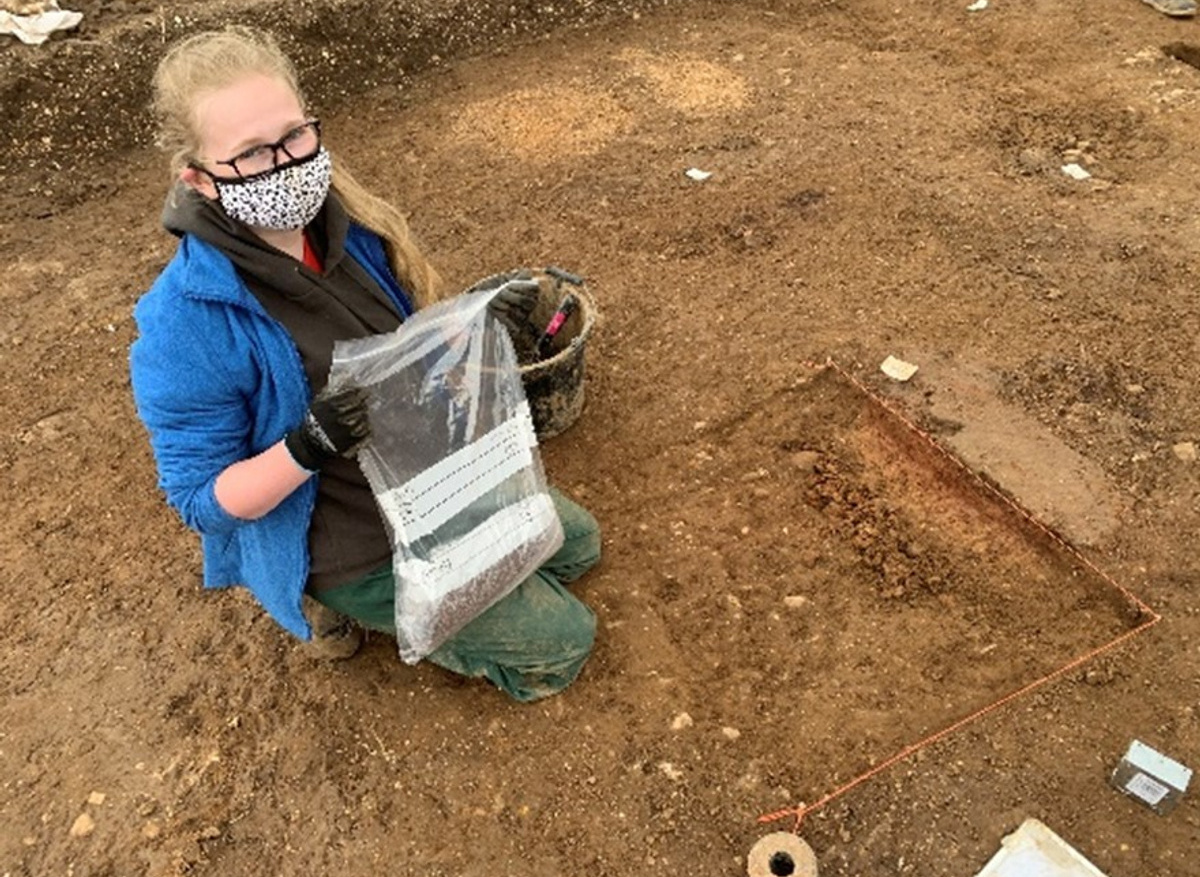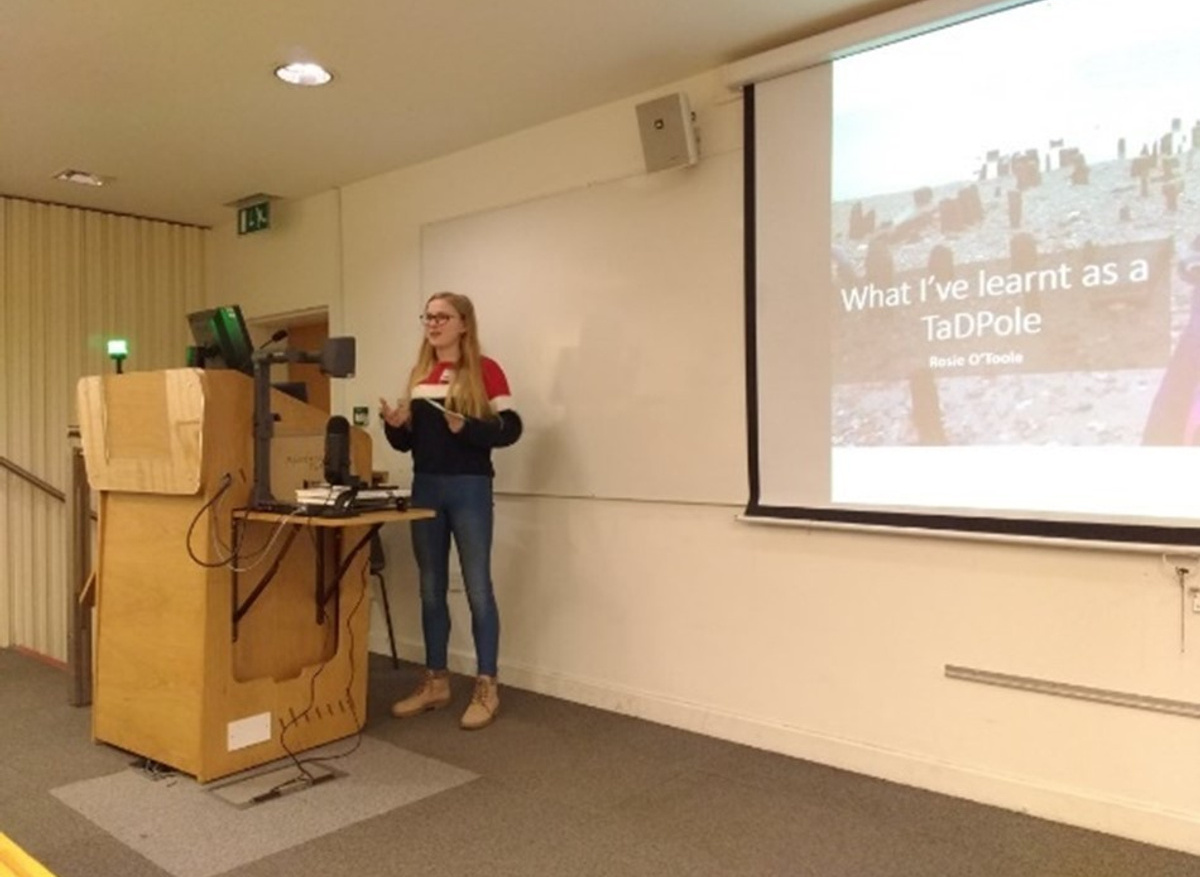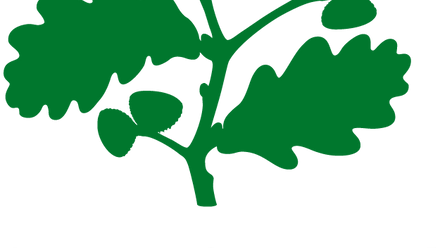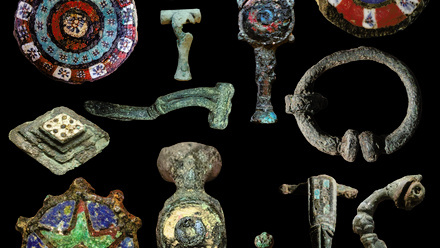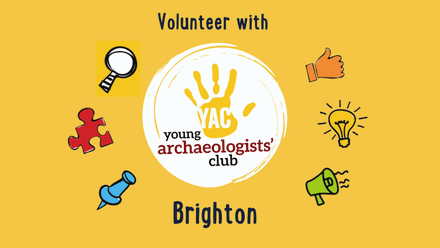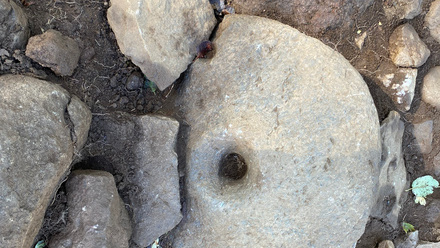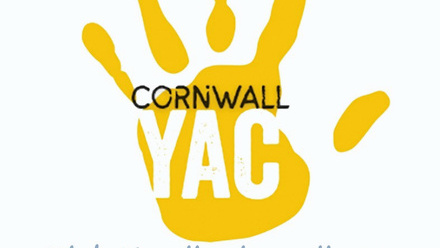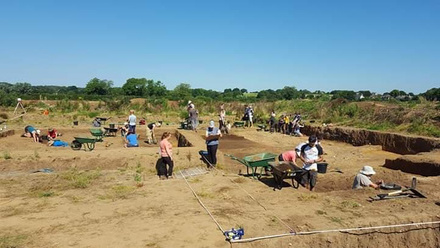My name is Rosie, I am currently fifteen, I’ve just finished my GCSEs, and I’ve been involved in both archaeology and YAC itself for nearly eight years now.
I first announced that I wanted to be an archaeologist in 2013 following a visit to Jorvik’s DIG. In the year following, I joined my two local branches of Young Archaeologists' Club (Aylesbury and Chiltern) and won a day at DigVentures’ Leiston Abbey site through YAC’s Dig It! competition. Ever since then, I’ve been regularly volunteering at excavations and have been as involved in archaeology as the mild inconvenience of school has allowed.
In the years since, I’ve been able to learn many new skills and get hands-on in applying them, from basic trowelling to mudlarking, from geophysics to photogrammetry. I’ve also shared much of what I’ve done both online and in person. I’ve spoken at my YAC groups, my school and even at Thames Discovery Programme’s annual Foreshore Forum. I’ve appeared in various DigVentures’ videos, including a series for their How To Do Archaeology – For Kids! course, as well as documenting my adventures for a year through my own online blog.
I was shortlisted for Young Archaeologist of the Year in 2017 and won the following year, receiving the prize at CBA’s Annual Archaeology Day. The award is a fantastic way for young archaeologists to connect with one another – just this past week, I worked with fellow shortlisted nominee Anna Priest on the Thames foreshore – and to find those precious projects and organisations that take on young volunteers.
Local YAC branches are generally a good place for young people to start, as many do provide occasional days on sites in addition to monthly meetings. Some archaeology societies and projects run excavations that accept young people, although largely only with a willing adult alongside. Museums occasionally take on young volunteers – I helped put together a travelling exhibition in a van through Amersham Museum. I’ve also done a considerable amount of fieldwork with groups like Oxford Cont. Ed.’s AAARP, the Thames Discovery Programme and DigVentures.
During Covid, it was harder than ever to stay involved in archaeology as a young person, as was the case for everyone. I continued volunteering with the Beacons of the Past project and attended online training to become a record reviewer for its Citizen Science LiDAR portal. I also partook in virtual YAC sessions: experimenting with food-based dyes, baking simnel bread, looking at map regressions, learning about paleopathology. One especially interesting session revolved around how archaeology will change in the future and the idea of digital archaeology, which was particularly apt given the world’s renewed reliance on the internet over lockdown.
However, this difficulty prompted many different groups and individuals to put out online archaeology content specifically geared towards young people. Many museums introduced digital versions of their collections to explore, and released downloadable activity packs and sheets. The aforementioned DigVentures’ course How To Do Archaeology – For Kids! was made freely available, along with some of their other courses. Professor Carenza Lewis and the Council for British Archaeology's Dig School published a series of archaeology workshops. In general, there is so much more quality content, information and reading available online now, not only for young people, but for a wider audience as well, as a result.
I did have the fortune of making it to actual archaeological excavations last summer and again this time around. With all the extra measures in place, it’s certainly been different. Sanitising and social distancing and mask-wearing did grow a little wearisome, but it was worth it to get digging and see all the familiar faces again. Or rather, see all the top halves of the familiar faces. My two YAC branches managed to squeeze in a couple of in-person sessions before the holidays, one at the Chiltern Open Air Museum and one carrying out geophysics at Aston Rowant. Before school starts again in September, I’m off to Yorkshire to spend a week at Elmswell Farm with DigVentures as well.
As of now, I myself have every intention to continue within archaeology. Provided all goes well on results day, I intend to take chemistry, history and classical civilisation at A-level in preparation to hopefully study archaeology at university. I know first-hand that can be difficult to find opportunities within the field as a young person at times, but there are plenty there if you know where to look and I hope I’ve provided evidence enough of that, and of how wonderfully welcoming the wider community can be.
If you have any more questions about being a young person in archaeology, feel free to ask me on Twitter @rosie_digs, where I also sporadically post about what I’m doing currently.

